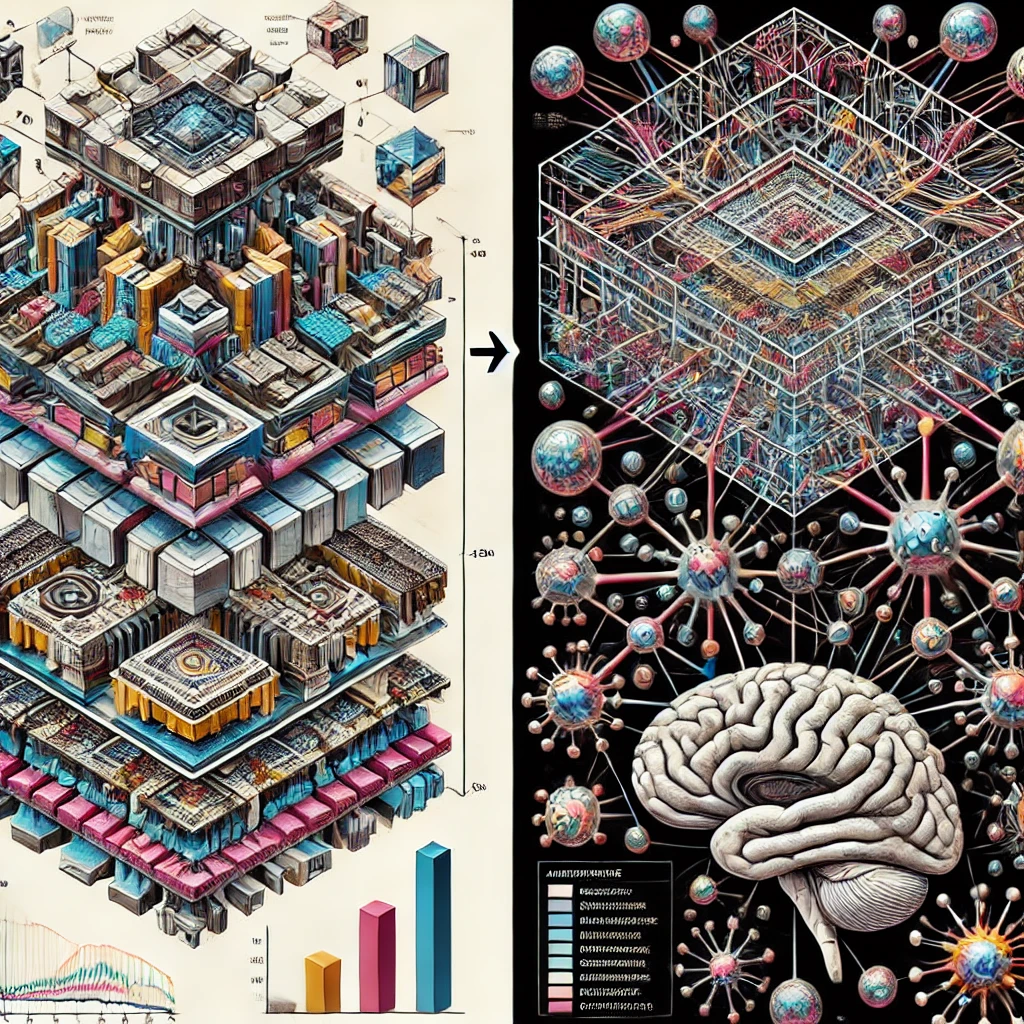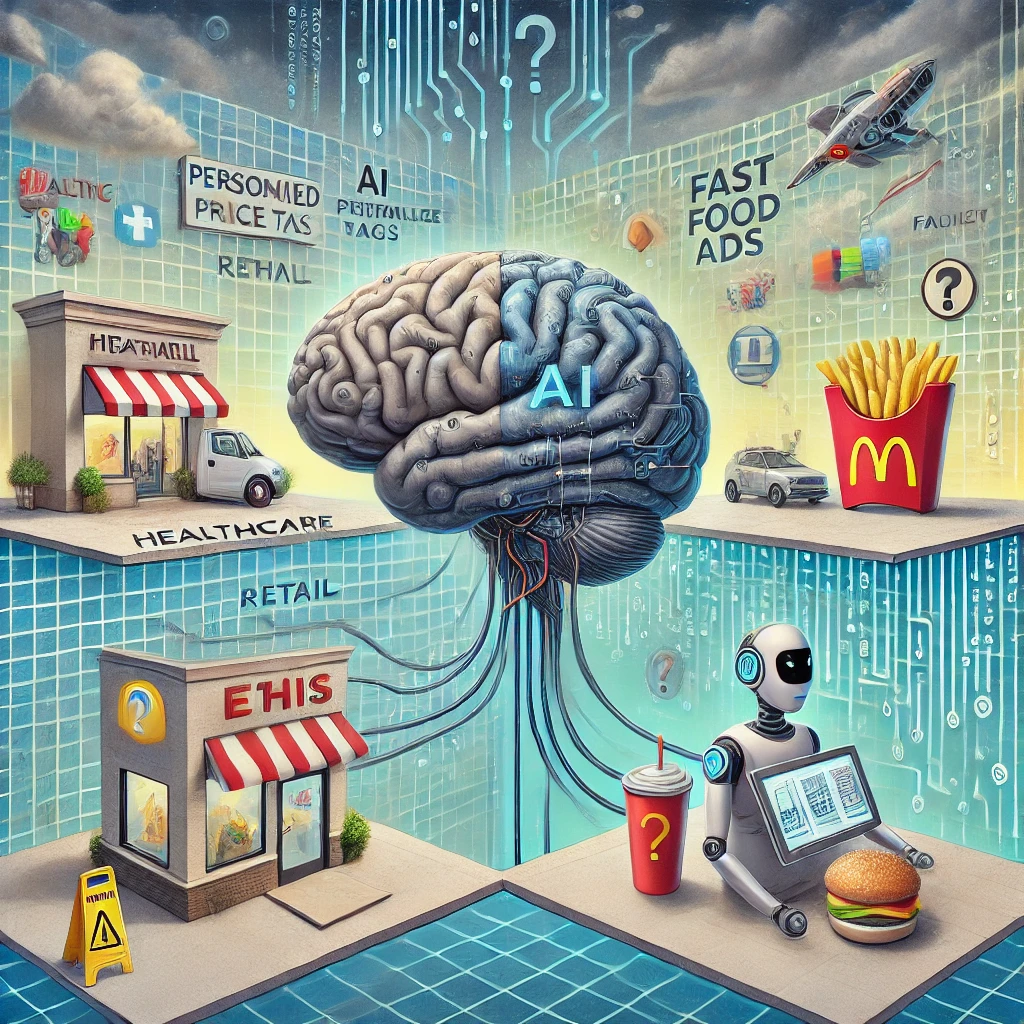
Deep Tech’s Role in Shaping the Future
| January 12, 2024
In a world advancing rapidly in technology, deep technology, also known as “deep tech” stands out as pioneering innovation. But what does deep tech mean? Deep technologies have foundations in major scientific breakthroughs or engineering developments. Unlike consumer apps and incremental software updates, deep tech can revolutionize entire industries through completely novel capabilities.
In this article, I will unravel the complexity around two deep tech pillars– artificial intelligence (AI) and quantum computing. These technologies may seem perplexing but unlock solutions for humanity’s greatest challenges, from climate change to disease.
What is Different About Deep Tech?
At its core, deep tech represents radical innovation. It delivers game-changing capabilities with potential to forge uncharted markets or disrupt entire industries. This could mean pioneering materials that transform manufacturing, biotech advances that revolutionize medicine, advanced materials for carbon capture, or artificial intelligence systems that reshape human-technology interaction. The distinguishing factor of deep tech is its capacity to fundamentally transform how we live, work and operate across sectors through previously impossible offerings, processes and insights that were previously impossible.
Deep Tech vs. Conventional Tech
While conventional technology often focuses on improving existing products or services, deep tech ventures into uncharted territories. It is not about a new app or an improved software version; it is about groundbreaking technologies that address significant challenges like the mRNA technology developed by Moderna, which not only played a crucial role in the COVID-19 pandemic but also has vast potential in other therapeutic areas. Deep tech startups often require more substantial investment in research and development and face longer paths to commercialization, but the potential payoff is correspondingly greater.
Fueling Deep Tech Momentum
Several factors are driving the growth of deep tech. First is the accelerating pace of scientific discovery, which is opening up new possibilities in fields like quantum computing (D-Wave, Rigetti) and synthetic biology (Ginkgo Bioworks, Arzeda). Another driver is the increasing availability of venture capital funding for bold ideas like AI-drug discovery (Insilico Medicine) and next-gen batteries (QuantumScape). Additionally, there’s a growing recognition of the need for solutions to pressing global challenges — from climate change to food scarcity — which deep tech is uniquely positioned to address through innovations in clean energy (Commonwealth Fusion Systems) and agriculture technology (Indigo Ag). As scientific breakthroughs continue unfolding and investors back moonshot ideas, more deep tech disruptors will emerge to transform legacy industries over the coming decade.
Hurdles in Deep Tech
Despite its immense promise, deep tech comes with critical challenges. The intricate complexity of innovations like quantum computing, biosciences and nanotechnology prolongs development timeframes and risks versus other tech domains. Another key obstacle is translating groundbreaking research into commercially viable offerings while navigating lengthy approval procedures. Moreover, deep tech startups must traverse complex regulatory environments and ethical considerations, especially regarding nascent fields like gene editing, neurotechnology and AI. Access to specialized technical talent also proves testing. However, the staggering upside potential of crafting new sciences and technologies grounds the motivation to surmount these deep tech headwinds.
Deep Tech’s Role in Shaping the Future
The impact of deep tech extends far beyond the technology sector. It has the potential to address some of the most pressing issues of our time, from environmental sustainability to public health. crisis. By leveraging radical innovations, we can unlock novel solutions and opportunities in climate change, disease prevention, food scarcity previously deemed implausible. Quantum computing’s unmatched processing power could analyze complex climate data, while synthetic biology could genetically engineer drought-resistant crop strains that thrive with less water, Ai-discovered drugs, rapid diagnostics tests driven by nanotech and nuclear fusion represent more reality-defining applications on the frontier. As scientific limits extend, so will our imagination for applying deep tech across sectors.
The Outlook for Deep Technology
Deep tech stands at the forefront of innovation with the power to reshape our reality. As we delve into the realms of Artificial Intelligence, nanotechnology, synthetic biology and quantum computing, we recognize their pivotal role to lead the technological forefront. As public and private sectors increasingly invest in the digitization of healthcare, agriculture, finance and more, adoption of deep tech is poised for a rapid ascent, promising transformative changes across various industries.
Despite inherent challenges like prolonged development periods and intricate frameworks, deep tech thrives on scientific ingenuity that pushes beyond conventional boundaries. We are currently at the threshold of a new epoch, marked by the fusion of diverse disciplines such as computing, engineering, and biosciences. This convergence is setting the stage for deep tech breakthroughs that promise to reshape our society in profound and sometimes disruptive ways. As we venture deeper into this era, the possibilities appear endless when the depths of human imagination meet the depths of our scientific understanding.
Recent Blogs
View All
Scaling Intelligence: Quantum Bits to Global Networks
| August 29, 2024

The Future of Shopping is Now
| July 25, 2024

Navigating the Future of AI and Society
| July 24, 2024

AI Ethics: Unseen Challenges Across Industries
| June 24, 2024

A snapshot of the Current AI Landscape
| June 21, 2024


test